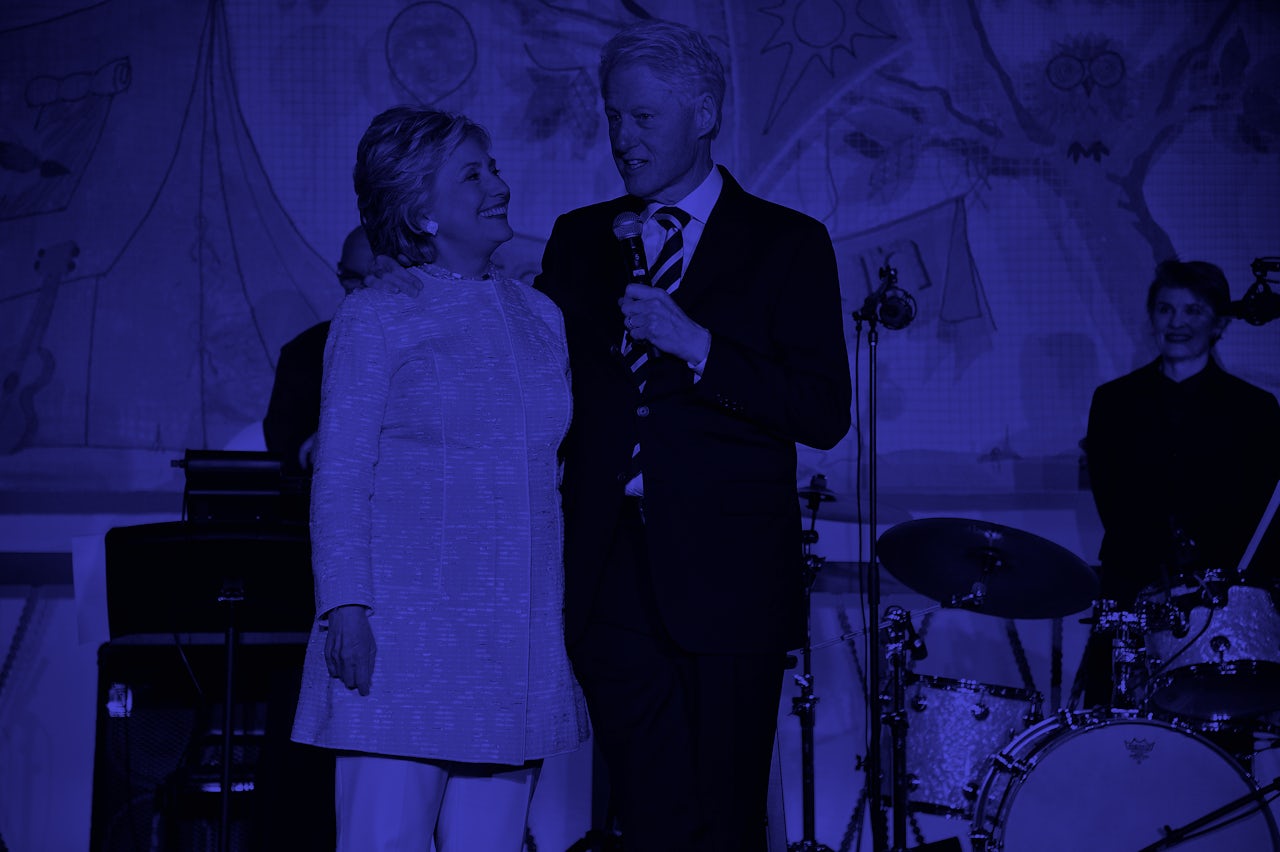If the opinion pages of the New York Times are to be believed, Linda Sarsour is the biggest threat to a unified — and more importantly, a legitimate — American leftist movement. Sarsour, a longtime Muslim-American activist, is no stranger to attacks from the right. After she was asked to help organize the 2017 Women’s March, conservative blogs decried her as an anti-Semitic ISIS sympathizer whose ultimate goal is to replace the U.S. Constitution with sharia law. More recently, however, Sarsour has become a punching bag for liberals making nearly identical claims under the guise of helping the #resistance — and their criticisms are no less steeped in Islamophobia than those coming from the right.
In an op-ed published Tuesday, Times opinion editor Bari Weiss took a quick break from complaining about college students and writing James Comey fan fiction to accuse the Women’s March organizers — Sarsour in particular — of co-opting the anti-Trump movement to spread hate. Weiss claimed that Sarsour and co. have “embraced decidedly illiberal causes and cultivated a radical tenor that seems to alienate all but the most woke,” harming the left in the process. According to Weiss, Sarsour’s many sins include being an anti-Zionist, criticizing an anti-Muslim activist, supporting Assata Shakur, and this 2015 tweet about sharia law that anyone with even a slight sense of humor can identify as a joke.
There are a few problems here.
For one, Weiss deems Sarsour, who has held several fundraisers to repair vandalized Jewish cemeteries, an anti-Semite because of her anti-Zionist activism. In doing so, Weiss conflates anti-Zionism with anti-Semitism, which, as Natasha Lennard recently wrote for VICE, “creates a dangerously silencing discourse around the question of Israel and Palestine” and ignores the existence of anti-Zionist Jewish organizations.
Weiss cites the fact that Sarsour has repeatedly butted heads with Ayaan Hirsi Ali — whom Weiss refers to as merely an “anti-Islamist feminist” — as proof of her intolerance. Hirsi Ali was raised Muslim in Somalia, forced to undergo female genital mutilation as a child, and eventually sought asylum in the Netherlands, where she found a career in politics. Since then, she has become a darling of the nativist right for claiming there are no moderate Muslims and supporting anti-refugee policies. Curiously enough, Weiss doesn’t consider Hirsi Ali’s anti-Muslim statements as “illiberal” or “radical” as Sarsour’s criticisms of Israel.
Most troublingly, Weiss claims that Sarsour, a Muslim woman who has been repeatedly accused of sympathizing with ISIS and other terrorist organizations, defends “domestic terrorist[s]” because of her support of Assata Shakur. Weiss conveniently fails to mention that a large swath of leftists, Sarsour included, think that Shakur should have never been labeled a terrorist in the first place. Shakur, a civil rights activist and member of the Black Liberation Army, was one of three BLA members charged with murder in the 1973 shooting of a New Jersey state trooper.
Despite maintaining her innocence (she said her hands were up at the time of the shooting), Shakur was sentenced to life in prison in 1977 — two years later, she escaped from prison and sought asylum in Cuba, where she still lives as a fugitive. In 2013, the FBI placed Shakur on its list of the top 10 most-wanted terrorists, but leftist activists including Angela Davis and Cornel West maintain her innocence. The Women’s March organizers’ support of Shakur isn’t a celebration of “cop killers,” but rather a defense of someone they believe was falsely convicted of a crime.
“Ms. Sarsour and her defenders have dismissed all of this as a smear campaign coordinated by the far right and motivated by Islamophobia,” Weiss writes, adding that centrists and liberals have recently contributed to the anti-Sarsour backlash. She’s right in one respect: Though the smear campaign against Sarsour undoubtedly originated on the far right, liberals were quick to pile on.
Weiss is by no means alone in her bad-faith criticisms of Sarsour.
In the days surrounding the Women’s March, NYTLive, a branch of the Times that partners with conferences including Women In the World, published two Sarsour takedowns. In one, NYTLive contributor Emma-Kate Symons decried the march’s “exclusionary identity politics,” zeroing in on Sarsour in particular. “Linda Sarsour is a religiously conservative Muslim veiled woman, embracing a fundamentalist worldview requiring women to ‘modestly’ cover themselves, a view which has little to do with female equality and much more of a connection with the ideology of political Islam than feminism,” Symons wrote. Sarsour was a hypocrite for excluding pro-life women from the march while being associated “with an illiberal ideology that many Muslim women say is all about men controlling their bodies,” i.e., wearing hijab. (Ironically enough, Symons said it was “encouraging” that the march’s official mission statement included Malala Yousafzai, who also wears a headscarf.)
The anti-Sarsour campaign is about more than Linda Sarsour.
After the march, NYTLive published an un-bylined piece about Hirsi Ali calling Sarsour a “fake feminist,” which, like Weiss’s op-ed, was completely uncritical of the former while smearing the latter.
Fanning the flames, CNN’s Jake Tapper last month blasted the Women’s March on Twitter for celebrating “cop-killer fugitive” Shakur, which Weiss called a “sober criticism” in her op-ed. Sarsour responded to Tapper with a tweet of her own in which she said the CNN reporter had joined “the ranks of the alt-right to target me online,” prompting yet another flurry of hit pieces.
Taking Sarsour’s tweet perhaps a little too literally, Bustle politics editor Emily Shire wrote an op-ed for The Daily Beast in which she claimed Sarsour was equating Tapper, “one of the top ten journalists to face the most anti-Semitic harassment in 2016,” to a shitposting Trump supporter. “Yes, apparently, all it takes to qualify as a member of the utterly repugnant and hateful alt-right is to disagree with Sarsour,” Shire wrote.
“Sarsour’s ridiculously weak attempt to slander Tapper as a member of the ‘alt-right’ was not the first time she tried discrediting negative reports about her by falsely attacking the character of those voicing them,” Shire added. “Last week, it was reported that the damaged Jewish cemetery that Sarsour had professed to raise money for had not, in fact, received funds.” (Gothamist reported in May that the cemeteries had, in fact, received the money.)
The anti-Sarsour campaign is about more than Linda Sarsour. Shire, for one, suggested Sarsour should serve as a “much-needed wakeup call for feminists and others on the left about the destructive tactics that the intersectionalist [sic] left appears to be picking up from its counterparts on the alt-right.” Weiss, who before attacking Sarsour, wrote and edited opinion pieces about leftist college students’ alleged transformation into illiberal opponents of free speech, has similar opinions about intersectionality having gone too far.
“In practice, intersectionality functions as a kind of caste system, in which people are judged according to how much their particular caste has suffered throughout history,” Weiss wrote in a June op-ed. “Victimhood, in the intersectional way of seeing the world, is akin to sainthood; power and privilege are profane.”
Weiss has shifted targets, but her goal remains the same: Challenging and belittling actual leftist movements at every opportunity. College students were an easier scapegoat — they’re young, they’re idealistic, and they typically aren’t known for their nuance — but Sarsour has become a prime target. Unlike students, whose political opinions are often still in flux, Sarsour can be painted as malicious and opportunistic. Like Shire said, Sarsour should be a “much-needed wakeup call” for the left: She’s an example of the lengths self-proclaimed liberals will go to to maintain their power under the guise of protecting free speech and resisting Trump.

